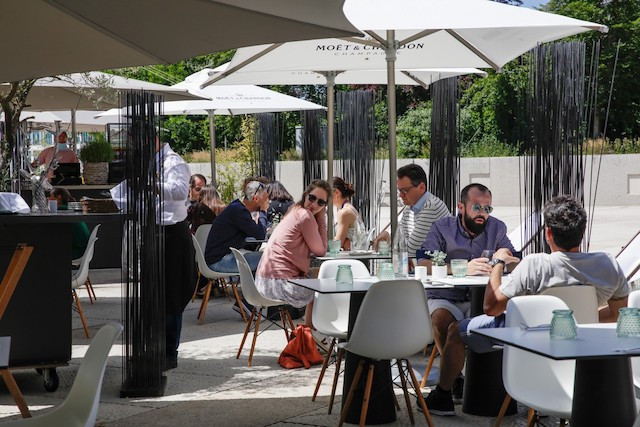A bar owner recently won a lawsuit against the Brasserie de Luxembourg over rent payments, which the owner said he couldn’t pay because of the government-mandated closure of the sector.
The Brasserie de Luxembourg, which produces the Mousel and Diekirch brands, owns between 500 and 700 bar licences. The Brasserie Nationale, which makes Battin and Bofferding, holds 400 to 600 licences. Together, they made up for around 46% of licences to serve alcohol in 2019, according to official data.
“They tell you what you have the right to sell, even the quantities,” says lawyer Joël Marques about contract negotiations with the two companies. Frank Rollinger, who helped his client win rent reimbursement, says: “You don’t have a choice. You are faced with a brewery that comes with a pre-printed contract, and you sign, or you don’t. If you don’t sign, then you’re not an operator.”
Included in the contracts is a clause on the re-letting of premises. Should a tenant leave, they must pay rent until the premises are re-let, which can take months.
“It’s a big problem in Luxembourg. You don’t have a choice. They make the rules,” says a restaurateur who wanted to remain anonymous. “They lock us in, forcing us to buy beer, wine, coffee from them... with defined minimum amounts.” He says that breweries recalled orders after he looked elsewhere for some products, and prices are also not that good.
The man says that he has seen beer cheaper on sale at the supermarket. “How do you explain that an individual can get it cheaper than me, who doesn't have a middleman and who places regular orders all year round?”
In most cases, the breweries don’t own the buildings but are an intermediary between owners and restaurant and bar managers. Another point of conflict for the restaurateur interviewed was he couldn’t directly negotiate with the landlord on a rent reduction during the pandemic.
A Luxembourg competition council says that it is aware of the problem and is researching the issue.
The restaurateur said he doubts that a decrease in demand for alcohol licences because of the pandemic will have an impact on the duo dominating the market. “The system won’t change. These breweries have all the best locations. They put who they want in them at their conditions. They won’t let go so easily.”
Out of the 320 sites managed by the Brasserie Nationale all are currently let, says director Mathias Lentz. “We aren’t seeing a decrease in lease requests.”
But he says that contracts are adapted depending on the client. “This forms part of a negotiation between the brewery and the client,” he says, including on “funding, provision of equipment, rebates, etc.”
The brewery allows microbreweries who are members of the Confédération des brasseries et des brasseurs du Luxembourg (CBBL) to sell bottled beer at their outlets, he says. In terms of leases, he says the brewery sticks to all applicable laws. Income from rents accounts for around 12% of revenue.
The Brasserie de Luxembourg did not respond to questions, saying only that it “regretted the impact of covid-19 on the horeca sector.” Where owners agreed, tenants have benefitted from rent rebates, the company said, adding that pipes for beer kegs would be cleaned free of charge when the sector can reopen, and that it would replace kegs that expired during lockdown.
This story was first published in French on paperjam.lu and has been translated and edited for Delano.
